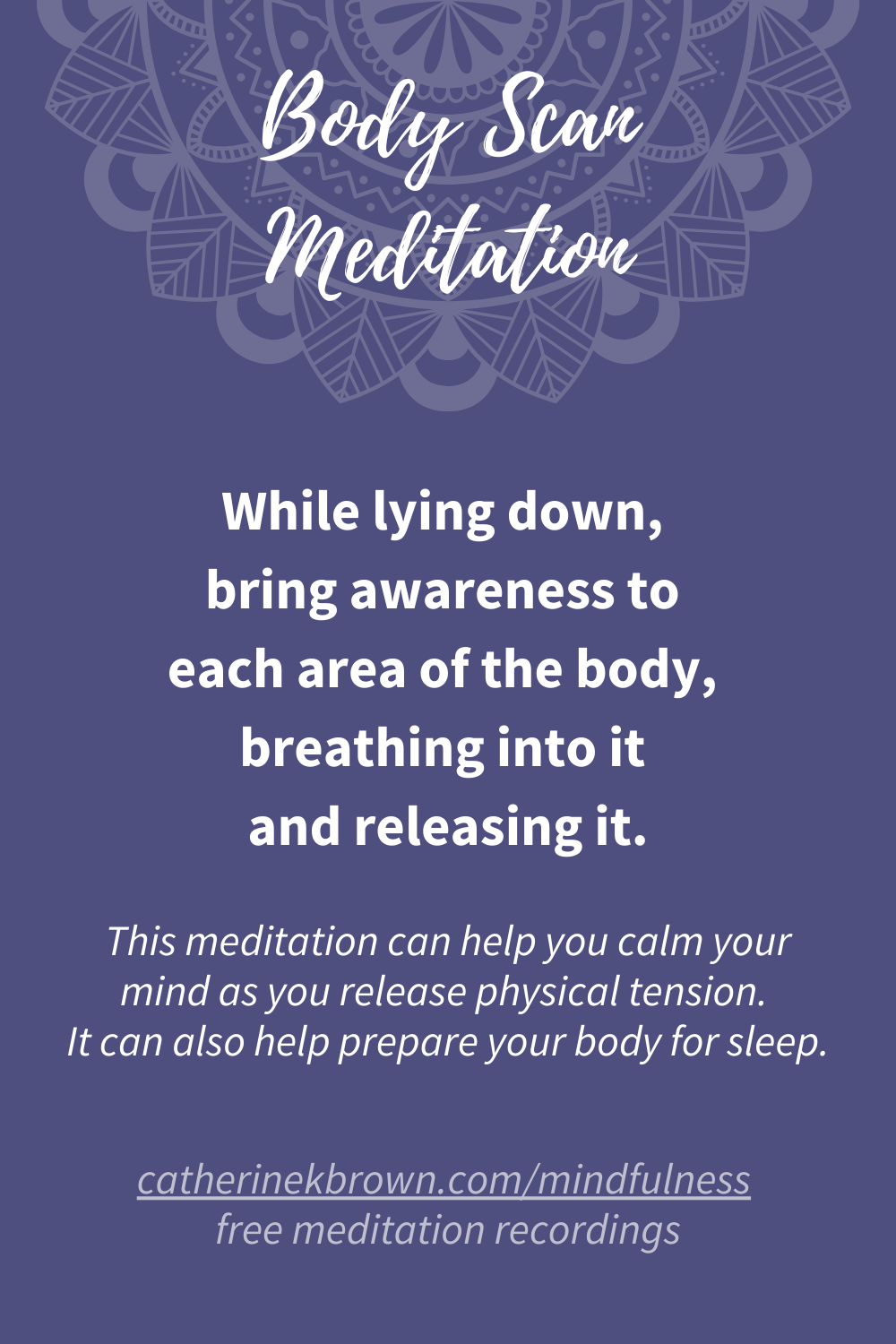I feel strongly that mindfulness meditation has been essential to my growth as a singer. It has helped me become more aware of my body and breath and has enabled me to reduce tension. But if you’re a singer who is new to meditation, figuring out where to start can be overwhelming. As a voice teacher and trained mindfulness instructor, I’d like to offer some insight.
Let’s start by looking at four ways that singing and mindfulness can complement each other.
Singing requires deep breathing, and mindfulness trains the mind to focus on the breath.
Singing requires the ability to release some muscles while engaging others, and mindfulness encourages physical relaxation and body (somatic) awareness.
Singing requires the ability to focus on many things at once (technique, melody, rhythm, lyrics), while mindfulness can improve cognition and increase mental focus.
Singing can trigger performance anxiety, but mindfulness can help us manage anxiety.
There are many, many types of meditation: mindfulness meditation, insight meditation, transcendental meditation, contemplative prayer, mantras, chanting, visualization, etc. I think that any form of meditation that helps you relax and focus is wonderful. However, the form that has been studied the most is mindfulness meditation, specifically an 8-week protocol called Mindfulness-Based Stress Reduction (MBSR).
Founded by Jon Kabat-Zinn, the program has been proven to:
encourage physical relaxation
increase awareness of the body
improve cognition and mental focus
reduce all types of anxiety
Here are a few of my favorite mindfulness meditation exercises for singers.
Sitting Meditation: This classic form of mindfulness meditation involves simply sitting and observing your breath as it enters and leaves your body. As thoughts are arise, you acknowledge them and let them go. It’s simple, but far from easy.
Purchase Sitting Meditation for Singers, Professional Voice Users, and People with Voice DisordersBody Scan Meditation: This meditation walks you through each area of the body starting from the toes and ending with the top of the head. You are guided to gently bring awareness to each area. We spend extra time on the face and throat.
Purchase Body Scan Meditation for Singers, Professional Voice Users, and People with Voice DisordersWalking Meditation: This mindful movement exercise can help you bring awareness to an everyday activity. It’s a wonderful way to energize the body and mind. It can be used alone or as preparation for a more passive form of meditation like the Body Scan or Sitting Meditation.
Purchase Walking Meditation for Singers, Professional Voice Users, and People with Voice DisordersMountain Meditation: The beautiful and descriptive meditation invites you to imagine yourself as a mountain: calm and still, despite constant change.
Purchase Mountain Meditation for Singers, Professional Voice Users, and People with Voice DisordersLovingkindness Meditation: In this exercise, you are invited to practice extending lovingkindness to yourself, to someone you know and love, to someone you feel neutral about, to someone you dislike, and to the world at large. At the end, you may extend lovingkindness to your voice, thanking it for the ways it serves you.
Purchase Lovingkindness Meditation for Singers, Professional Voice Users, and People with Voice Disorders
Some wonderful free meditation materials are available online.
University of California San Diego’s Center for Mindfulness runs an 8-week MBSR course and many of those materials are on their website. Most of the exercises are offered in varying lengths, from 5-45 minutes. There are even a few videos of mindful movement.
University of California Los Angeles’s Mindful Awareness Research Center has a podcast and offers online meditations in English and Spanish.
The Center for Mindful Self-Compassion offers its basic meditation materials online in MP3 and PDF formats.
Mindful magazine publishes a list of free online meditations, some of which are listed above.
Taking your meditation practice deeper
The gold standard in meditation courses is the Mindfulness-Based Stress Reduction (MBSR) program. Many hospitals, community centers, and meditation studios offer the program in person and online. The original MBSR protocol involves an 8-week commitment in which participants attend a weekly instructor-led class lasting 2.5-3 hours, practice 45-60 minutes of meditation using recordings, and attend one full-day retreat. Researchers are now starting to study a “low dose” MBSR protocol in which class time is reduced to one hour and attendees spend 20 minutes a day practicing meditation and/or yoga. There are also many other meditation protocols that have been derived from MBSR, including:
Mindfulness Based Cognitive Therapy (MBCT) for people with recurrent depression and/or anxiety
Mindful Self-Compassion (MSC) for people struggling with perfectionism and self-criticism
Mindfulness-Based Relapse Prevention (MBRP) for people in recovery
mPEAK for athletes, business professionals, and other high achievers
I am working towards a Graduate Certificate Program in Applied Mindfulness at West Chester University. My capstone project is a research study measuring the effects of mindfulness on people with voice disorders.
Recommended meditation teachers
You can also find wonderful resources on the websites of these meditation teachers (listed alphabetically by last name). I have also listed the type of meditation for which they are best known, although there is much overlap in the various categories. Many hold a variety of titles, including psychologist, psychiatrist, medical researcher, and Buddhist teacher.
Tara Brach (Insight Meditation)
Pema Chödrön (Tibetan Buddhist meditation)
Christopher Germer (Mindful Self-Compassion)
Kristen Neff (Mindful Self-Compassion)
Thich Nhat Hanh (Zen Meditation)
Jon Kabat-Zinn (creator of Mindfulness-Based Stress Reduction)
Jack Kornfield (Insight Meditation)
Sharon Salzberg (Insight Meditation)
Daniel Siegel (founder of Mindsight Institute)
David Treleaven (Trauma-Sensitive Mindfulness)
Recommended mindful movement teacher
Sarah Whitten has extensive experience using yoga as a tool to help people with voice problems. She holds an M.A. in Vocal Pedagogy and an M.M. in Vocal Performance (both from Ohio State University) and has completed additional coursework in voice disorders at the Massachusetts General Hospital Institute of Health Professionals. She is a 500-hour Certified Yoga Teacher and a Certified Yoga Therapist. She spent 13 years as a member of the voice faculty at Harvard University.










